Election 2015: Sturgeon says Cameron must go further on devolution
- Published
Nicola Sturgeon wants a "good deal" on fiscal autonomy
Scottish First Minister Nicola Sturgeon has called for new tax and welfare powers to be devolved to Scotland as a "priority".
Ms Sturgeon told the BBC such powers would allow the Scottish government to grow the economy.
She added that she had spoken "briefly" to Prime Minister David Cameron but more discussions were required.
Ms Sturgeon also said her party now provided the main opposition at Westminster.
Labour, with 232 MPs, are the official opposition but Ms Sturgeon claimed her party, which gained 50 MPs on Thursday, was the one putting pressure on Mr Cameron's Conservative government.
The SNP is the third largest party in the UK despite only standing in Scotland.
It took 56 of the 59 seats in Scotland, reducing Labour to just one MP when they had previously had 41.
Speaking to the BBC's Andrew Marr programme, Ms Sturgeon said Mr Cameron did not appear to want to move beyond powers already outlined in the Smith Commission, which was formed after the independence referendum to fulfil the pledge to give Scotland further devolution.
She said: "What we will argue for is priority devolution of powers over business taxes, employment, the minimum wage, welfare, because these are the levers we need to grow our economy to get people into work paying taxes and lifting people out of poverty.
"David Cameron did not give me any indication that he wanted to move beyond the current Smith Commission proposals.
"I think he has to and that clearly is one of the things we are going to have to discuss."

In other election developments:
Lord Mandelson has warned Labour against a quick "beauty contest" for its leadership, saying it needs a profound rethink about its future.
David Cameron has made Michael Gove the justice secretary and Chris Grayling leader of the Commons in his new Conservative government.
Senior Labour MPs are taking soundings as the party begins its search for a new leader - Liz Kendall and Chuka Umunna among those considering running
Tim Farron said he would decide "in the next few days" whether to put himself forward to replace Nick Clegg as Lib Dem leader
An anti-austerity protests took place outside Downing Street and in Cardiff
Pressure is growing on the Scottish Labour leader Jim Murphy after the Unite union called on him to resign.
Watch BBC election coverage and follow latest reaction
Read more analysis from the BBC's experts

Elsewhere in the interview, Ms Sturgeon was asked whether a UK government offer of full fiscal autonomy - the devolution of all tax and spend powers - within two years would be a "good deal" for Scotland.
She replied: "It would be the responsibility of the Scottish government and our MPs down in the House of Commons to make sure we get a good deal."
She said any move towards full fiscal autonomy created "questions" around issues such as how much Scotland contributed towards reserved areas such as defence, and how much Scotland would pay towards UK debt interest payments.
"We have not got into the details of those discussions," she added. "My starting point is that Scotland's voice has to be heard."
She said any move to full fiscal responsibility would take several years to implement.
Ms Sturgeon described her party as the "principal opposition to the Conservatives".
She said she would seek to build alliances with others to stand up for "progressive politics".
Responding to former SNP leader Alex Salmond's comments on Saturday that following the party's landslide victory he thought Scotland was now closer to independence, Ms Sturgeon said there was "no disagreement" between them.
She said: "I think Scotland will become an independent country one day. He said he thinks it will be in his lifetime, I hope that's the case."
However, she repeated her previous stance that the election was "not about independence".
She added: "I said expressly to people in Scotland that if they voted SNP, and half of the Scottish population did, I would not take that as an endorsement of independence. I stick to that position.
"As First Minister, as leader of the SNP, I've got a responsibility to try to unite Scotland and I'm determined that I do that."
- Published10 May 2015
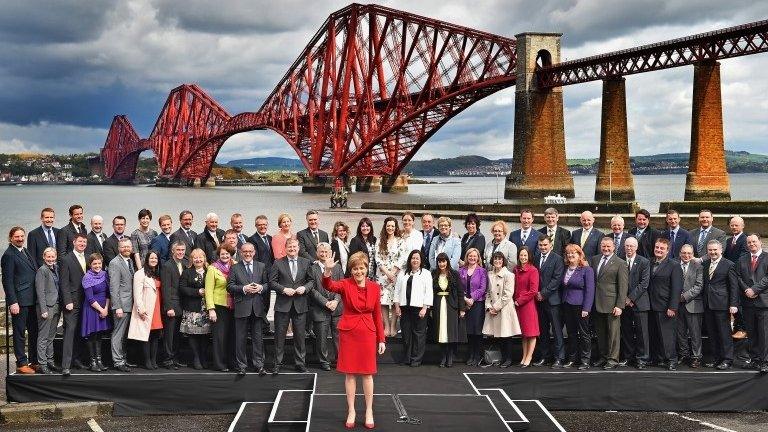
- Published8 May 2015

- Published8 May 2015
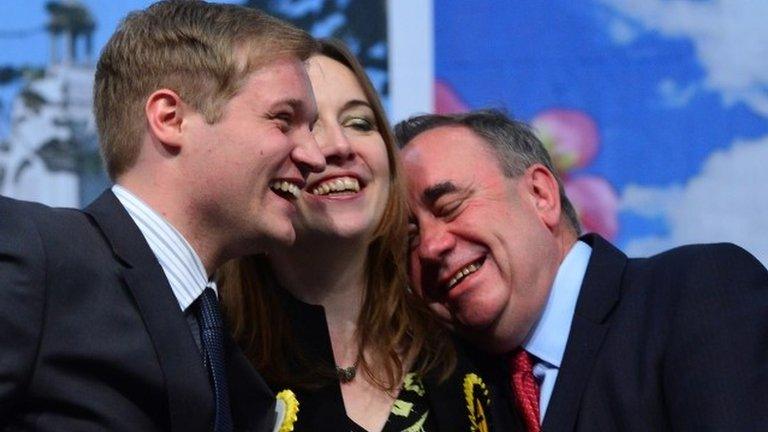
- Published8 May 2015
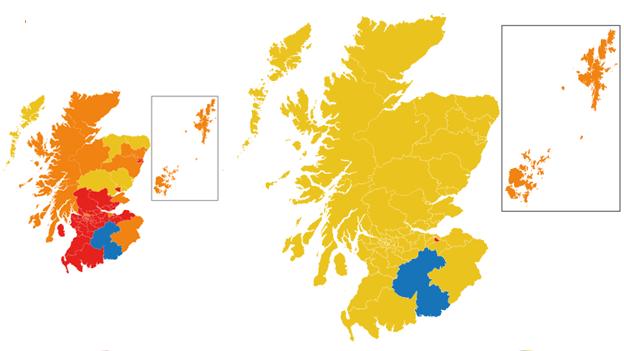
- Published8 May 2015
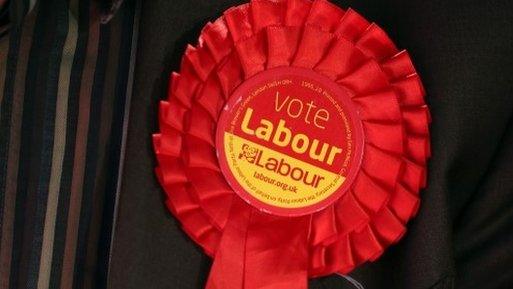
- Published8 May 2015
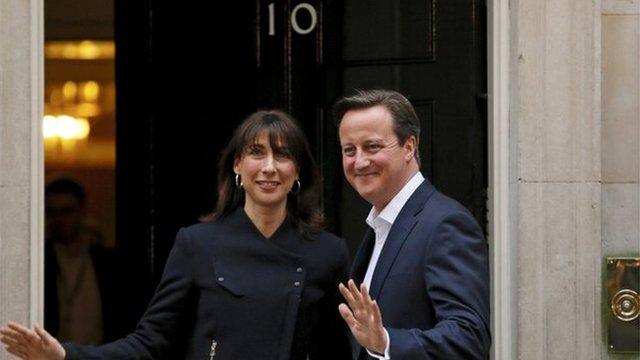
- Published8 May 2015

- Published8 May 2015
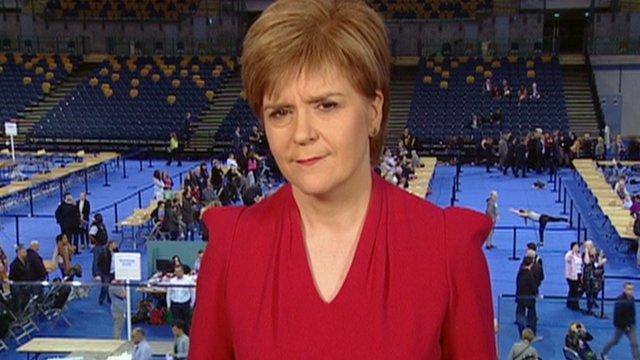
- Published8 May 2015